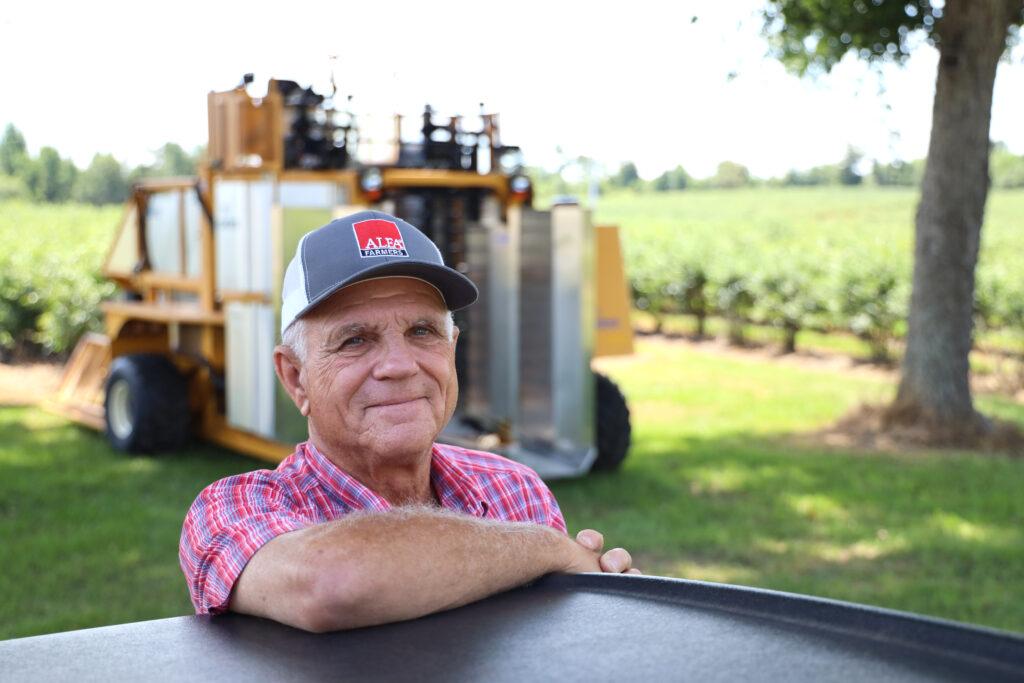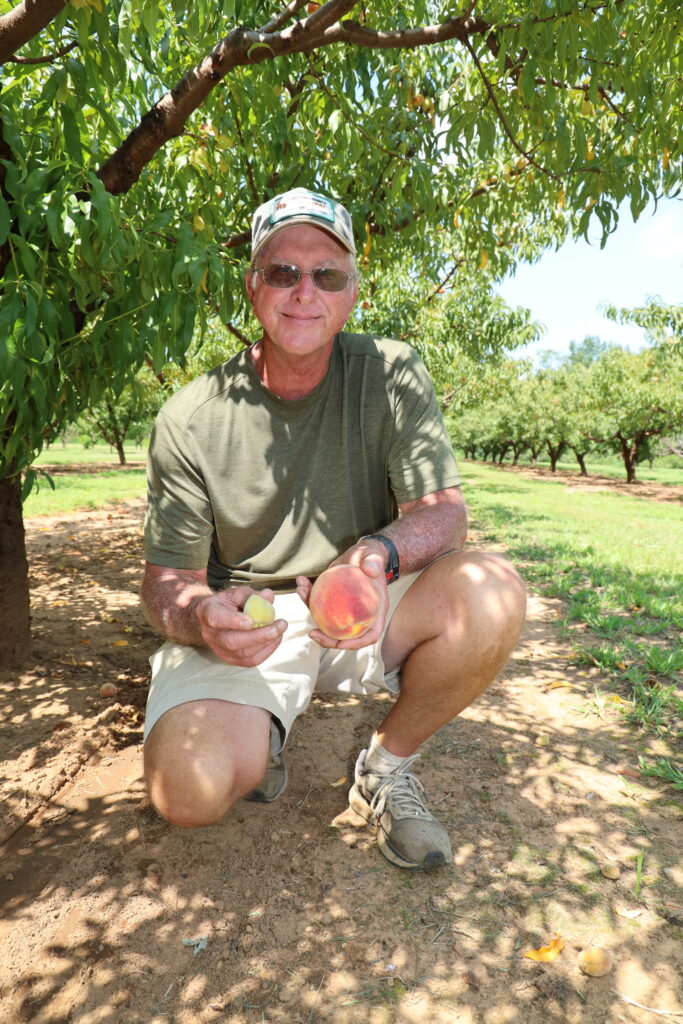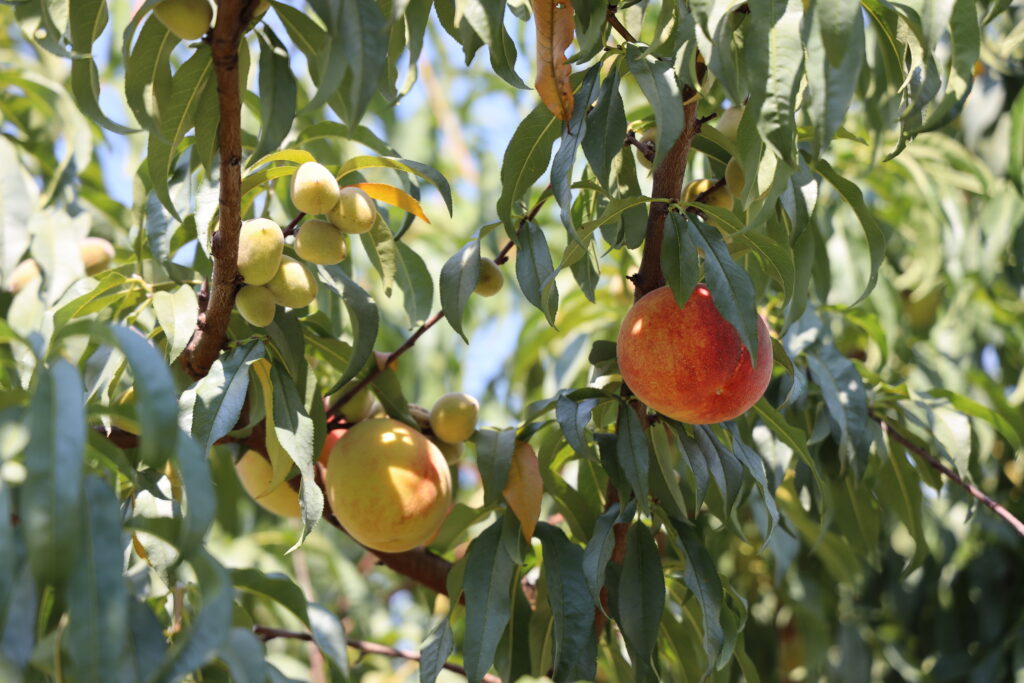Farmers Resilient Despite Diminished Supply of Specialty Crops

By Marlee Jackson
Alabama’s sweltering summer should have passed in a flurry of fruit picking for farmers like Lynn Harrison.
Instead, a March freeze devastated perennial specialty crops, squeezed profit margins, limited supplies at farm stands and caused farmers to tap into savings.
“I don’t know if everyone is this way, but I try to keep two years of operating money set aside,” said Harrison, the Chilton County Farmers Federation president. “If I have extra, I add to that.”
Harrison’s frugal approach paid off in the wake of a less-than-stellar production year. Each peach tree usually yields 15 baskets of the regionally famous fruit. This year, he gleaned just 10 baskets from a 30-tree orchard.
The loss was 99% farm-wide, Harrison said.
“On March 20, I had peaches that were this big,” said Harrison, making a quarter-sized circle with his thumb and pointer. “Then it got below freezing for eight and a half hours. I was hopeful for our late-season peaches, so I planted summer vegetables for our farm stand. By the end of May, I knew we wouldn’t have a real crop.”

In Washington County, blueberry farmer Jimmy Ferguson faced a similar reality two days before Harrison.
He spent the night of March 18 fighting freezing temperatures with a propane-fueled wind machine. The towering fan pulls warmer air closer to the fruit, ideally protecting the fragile buds from frost.
The first night was bad for tender, early blueberries. Night 2 was killer.
Following the freeze, Ferguson hit the fields to document damage. Photos of scarred berries were critical when he made a crop insurance claim.
“Farming is a form of gambling,” said Ferguson, who serves on the Alabama Fruit & Vegetable Growers Association (AFVGA) board. “That’s why we have crop insurance.”
The U.S. Department of Agriculture (USDA) regulates and reinsures specialty crop insurance through its Risk Management Agency (RMA). Covered crops include apiculture, blueberries, nursery products, peaches, pecans and more.
Gov. Kay Ivey worked with the USDA Farm Service Agency to help farmers post-freeze, too. A disaster declaration made farmers in 51 counties eligible for emergency loans. It was the first step to ensure eligibility for possible future assistance from USDA or Congress, said AFVGA Executive Director Blake Thaxton.
“A freeze like this shows the importance of not just living on a prayer,” Thaxton said. “Lynn and Jimmy are resilient. They have different approaches to preparing for disasters, but the key is they’re both actively prepared.”

This summer, the Harrison Fruit Farms stand still opened off Highway 82 near Maplesville. Harrison sourced peaches from other farmers when possible, often paying exorbitant prices because of low supply and steady demand.
Customers paid the price, too. A 4-quart basket of peaches cost customers $22, which is $8 more than last year. Harrison barely broke even.
While the freeze devastated quantities of fruit, Harrison and Ferguson also contended with consumer misconceptions about quality. They continued to encourage stops at farm markets, too, for later-planted summer produce.
Despite the season’s toll, Harrison is already at work preparing orchards for next year.
“These trees are planted, and I’ve got to do something with them,” Harrison said. “This is what I do. I made enough to farm again next year, so that’s good enough.”
